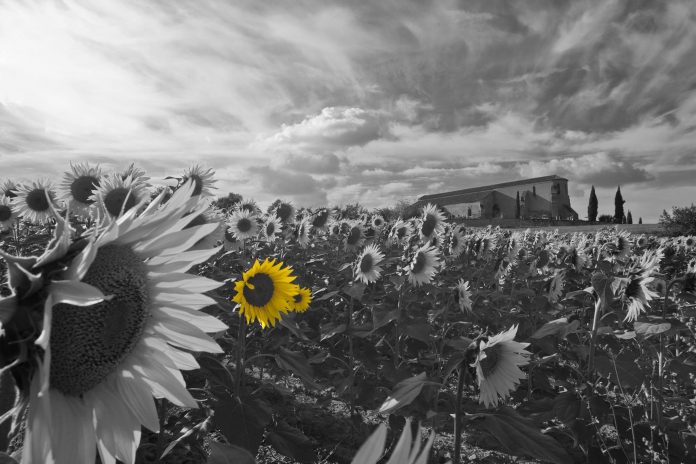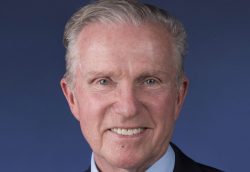When I started my medical training, I was an innocent, fresh faced, healthy young woman, full of life and enthusiasm.
I came out the other end of the process overweight, chain-smoking, heavy-drinking, jaded, cynical, depressed, and exhausted, completely lacking in self-confidence and any ‘joie de vivre’.
Whilst no-one forced me to overeat, drink and smoke, these were the behaviours I turned to in reaction to what I was feeling, to try and ease the pain and sadness of it, to try not to feel it all so acutely, for medical training was intense and brutal, to be honest.
We were not supported, or even acknowledged, as people within the medical education system while we were training.
There was no support for the challenges we were faced with, in terms of both the intensity of what we were supposed to learn and recall on demand, and the sheer volume of human misery and suffering we were exposed to on a daily basis.
We were the lowest of the low in the hospital food chain – regarded as useless encumbrances who got in the way of other people trying to do their jobs. Most nurses treated us with contempt, if they paid us any attention at all (not all, some were a great support) and some more senior doctors seemed to delight in publicly humiliating us.
Once we graduated, we were set to work. I lived on coffee and sugar by day, and alcohol and cigarettes by night, trying to get through the rigors of a ridiculously demanding job.
As a first year intern, my first rotation was night shift. I was left to fend for myself alone at night in an enormous public hospital, with absolutely no clue of what I was doing. To get help I would have to wake up someone who was also exhausted and working 100 hours a week. Thank God for senior nursing staff, whom I was humble and smart enough to ask for help, and who saved my life – and probably countless patients’ lives – with their experience and care.
I would work all night in a state of extreme tension, then go home and be unable to sleep during the day, so I would sit up watching daytime TV and drinking, until I fell unconscious for a few hours and got up to do it all again.
This went on for 8 weeks – as for some reason I had to do a double rotation of nights – by the end of which I was an exhausted mess.
I did not kill or maim anyone, as far as I know, but that can only be by the grace of God, and the fact that I was at heart a kind, caring and conscientious person and a naturally good doctor, strange as it may seem!
Our working week averaged 100 hours. We would start work at 6-7 am (it was supposed to be 8), finish at 8-9 pm (it was supposed to be 6) and then come back to do it all again the next day. One night a week we would also be on call all night as well as the days either side, and one weekend in 4 we would be on call all weekend, so we would start work at 8 am Saturday, and finish at 8 or 9 pm on Monday night – a 60 hour shift. And then work our normal week.
No-one ever told me that medicine would be like this.
It did not come with a health warning.
Times have changed, but regrettably, these working conditions have not. Lip service is paid to working more reasonable hours, but the fact is, that if you want a training position, particularly in surgery, you have to do whatever is asked of you, whether you are officially rostered on and paid for it, or not.
Medicine is an apprenticeship system, and we have come to accept the dictum that “If I had to do it, you have to do it too” as fair and reasonable.
We look proudly back at our history and say that the greats of the past were that way because of all the hard work they did, and we use this to justify continuing outdated practices like bullying, harassment and discrimination.
But we no longer send our children to factories to work, or whip them when they are naughty. We no longer treat illness by blood-letting. We no longer drive a horse and cart or ride a donkey to work.
Times change. People change. Systems change.
But only from within.
Until we learn to truly care for, honour and cherish ourselves, we will continue to put up with an abusive system, which only reflects the abuse with which we treat ourselves. We have to call it out for what it is – abuse – and understand that if we are abusing ourselves and allowing abuse from others, there is no way we can treat others with the kindness, care and compassion they deserve.
It starts with us.










I am sure most patients and their families would be shocked to learn that young doctors and medical students are being treated like this. There is a public perception of medicine being glamorous and well paid. I remember comparing pay slips with an intern once and my 40 hours a week as nurse was being paid the same as their 80 hours. There is no money or status worth the sleep deprivation and stress the young doctors find they have to accept as ‘just the way it is’. No one can give great care when they are exhausted or feel unsupported. Working in hospitals I have experienced the hierarchical system within health care that this article speaks of, where everyone feels entitled to treat someone ‘below them’ with contempt, frustration etc. If nurses and senior doctors treat young doctors like this, it no wonder they eventually take the only ‘reward’ for the abuse by becoming an arrogant senior doctor who looks down on junior doctors and everyone else!